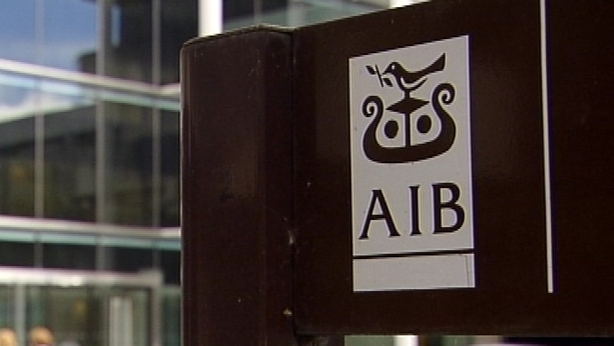AIB has been fined €2.27m by the Central Bank for breaches of money laundering and terrorist financing regulations.
AIB has admitted the failures which were spotted by regulators.
It has been fined for six major breaches which regulators describe as unacceptable weaknesses.
The failures relate to legislation to prevent money laundering and financing of terrorist organisations.
AIB provided banking to more than half a million customers without ensuring they had provided proof of address and identification.
The bank also took 18 months to fully address a backlog of 4,200 potentially suspicious transactions.
These dealings should have been reported to the gardaí and Revenue promptly if suspicions were confirmed.
AIB said steps to mitigate the risks had been put in place to resolve all of the issues.
We need your consent to load this rte-player contentWe use rte-player to manage extra content that can set cookies on your device and collect data about your activity. Please review their details and accept them to load the content.Manage Preferences
It added: "AIB has fully co-operated with the Central Bank at all stages of this investigation, which has now concluded."
The Central Bank has been getting tough with banks for failing to adhere to regulations.
The latest settlement means the Central Bank has now imposed fines of €57m since 2006.
This is the biggest fine levied against AIB by the Central Bank. It comes after a €3.325m fine issued last year to Ulster Bank for similar breaches.

The Central Bank's Director of Enforcement, Derville Rowland, said that anti-money laundering compliance is a continuing and increasing priority for the Central Bank across all financial services sectors.
"Firms must have rigorous and robust processes for identification, assessment and reporting of suspicious customer activity," Ms Rowland said.
"Crucially, those processes must ensure that information on suspicious activity is provided to An Garda Síochána and the Revenue Commissioners without delay to assist with the investigation of money laundering and terrorist financing," she said.
"This case emphasises the fundamental information sharing role of the financial services industry in the fight against money laundering," she added.
In a statement, Ms Rowland said that the Central Bank expects anti-money laundering frameworks are "fit for purpose" and that they are appropriate to the nature, scale and complexity of a firm's business activities.
"In particular, we expect that our retail banks, as gateways to the financial system, have in place exemplary anti-money laundering systems and controls," she added.
Fianna Fáil's finance spokesperson Michael McGrath said the breaches at AIB represented "a serious failure of governance at the bank".
Deputy McGrath said that coming just weeks before the planned IPO of AIB was an embarrassing development for the bank - and the Government.
"The identification of serious breaches by the regulator of vital Central Bank regulations sends the wrong message to potential investors in the bank at this crucial time," he said.
"Before taking further steps towards an IPO, the Minister for Finance needs to seek an assurance from the board of AIB that it has fully got its house in order in terms of compliance with Central Bank rules. We also need to know whether any further Central Bank investigations into AIB are underway that could impact on the decision to proceed with an IPO," he added.

